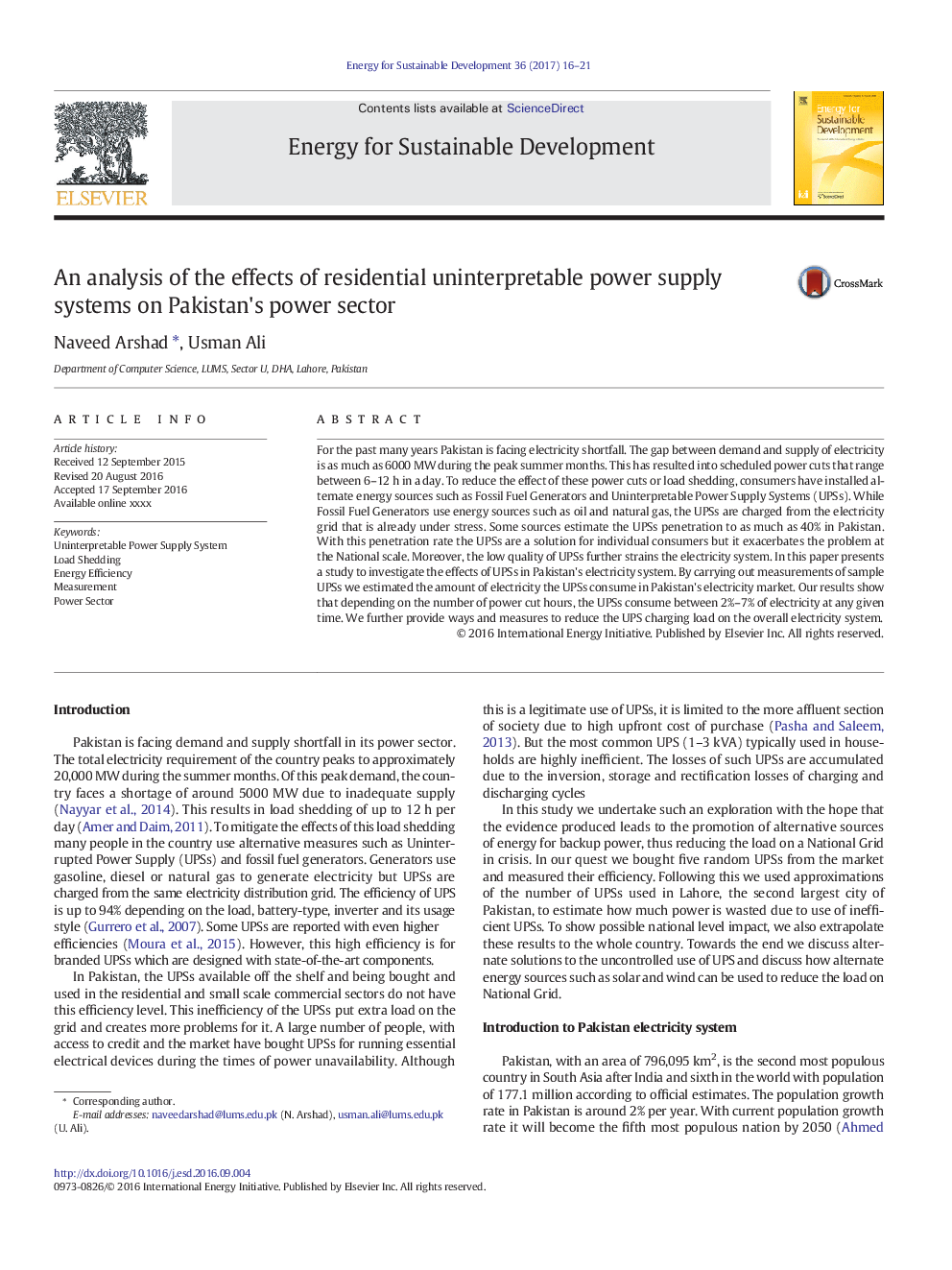ترجمه فارسی عنوان مقاله
تجزیه و تحلیل اثرات سیستم های ذخیره انرژی نامناسب مسکونی در بخش برق پاکستان
عنوان انگلیسی
An analysis of the effects of residential uninterpretable power supply systems on Pakistan's power sector
| کد مقاله | سال انتشار | تعداد صفحات مقاله انگلیسی |
|---|---|---|
| 142918 | 2017 | 6 صفحه PDF |
منبع

Publisher : Elsevier - Science Direct (الزویر - ساینس دایرکت)
Journal : Energy for Sustainable Development, Volume 36, February 2017, Pages 16-21
ترجمه کلمات کلیدی
سیستم قدرتمند غیر قابل تعویض، ریختن بار، بهره وری انرژی، اندازه گیری، بخش انرژی،
کلمات کلیدی انگلیسی
Uninterpretable Power Supply System; Load Shedding; Energy Efficiency; Measurement; Power Sector;

